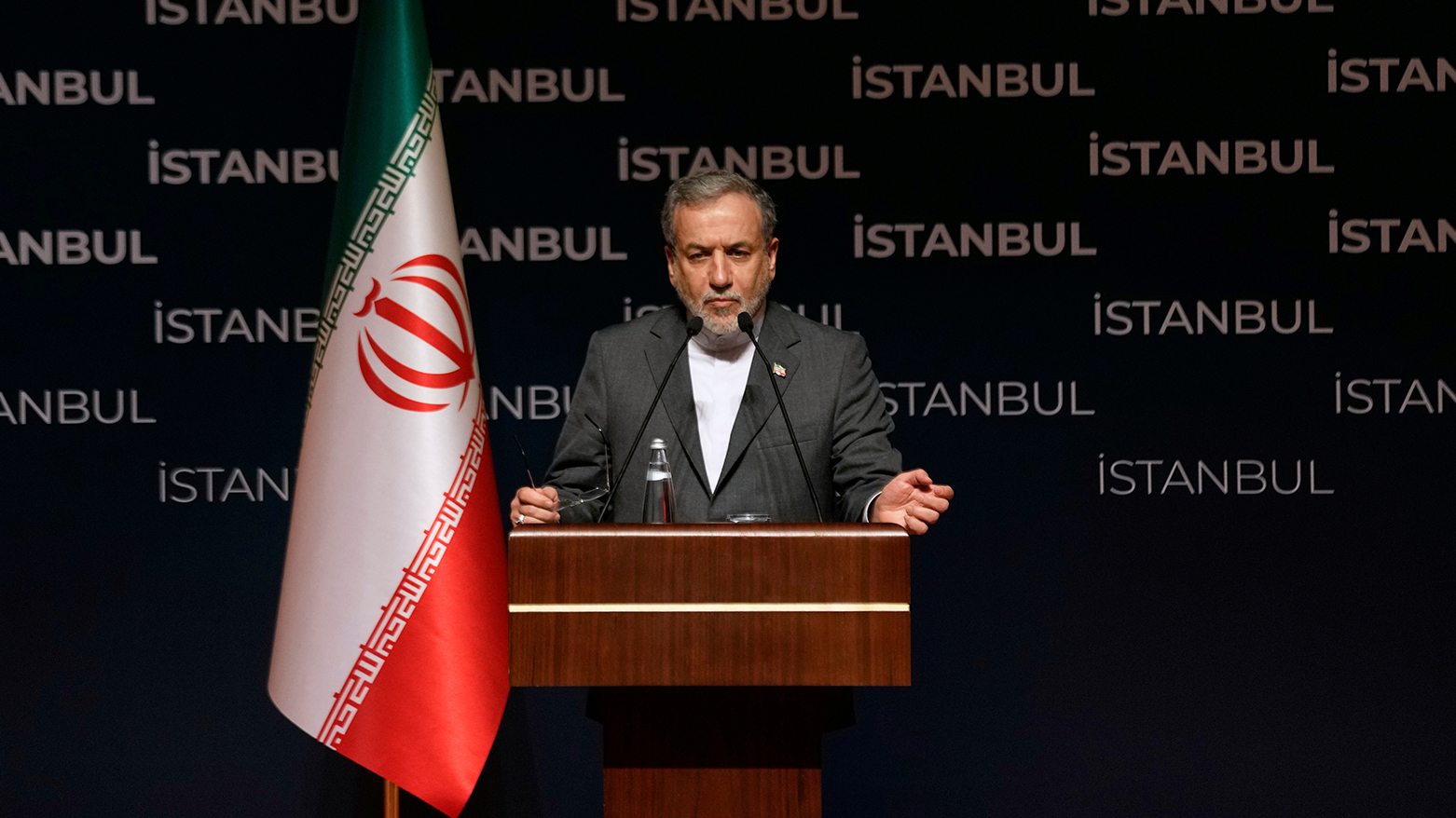Iran’s FM Araghchi: U.S. Military Aggression Rooted in Failure to Impose ‘Zero Enrichment’
Iran FM Araghchi says US military aggression stems from failed "zero enrichment" demand in Oman talks. He reaffirmed Iran's right to peaceful enrichment but warned future IAEA cooperation "will not resemble the past."

ERBIL (Kurdistan24) – Iranian Foreign Minister Abbas Araghchi said recent U.S. military aggression, carried out in coordination with Israel, stemmed from Washington’s inability to pressure Tehran into halting uranium enrichment entirely.
In an interview with the Islamic Republic News Agency (IRNA) on Wednesday, Araghchi explained that American negotiators entered Oman-mediated indirect talks with a consistent demand: “zero enrichment.”
“Some convinced them that as long as enrichment exists, the potential for nuclear weapons will always remain. Therefore, their demand became zero enrichment, which we completely resisted,” he stated.
Araghchi reaffirmed Iran’s long-standing position, citing a religious decree by Ayatollah Seyyed Ali Khamenei, and stressed: “Our policy is clear: we do not seek nuclear weapons. But we do insist on our right to enrichment for peaceful purposes, as well as to preserve the scientific achievements we have made independently.”
The foreign minister said that throughout the negotiations, Iran and the U.S. considered several practical proposals to balance enrichment with non-proliferation. However, these plans collapsed once American officials returned to Washington.
“Yes, we had several operational plans to strike a balance between enrichment and non-proliferation. These were seriously considered during the talks. But once they returned to Washington, certain actors persuaded them to insist on ‘zero enrichment,’” Araghchi revealed.
Despite the breakdown, he emphasized Iran’s commitment to diplomacy. “Our negotiations were planned by the Foreign Ministry well before the war, and we were able to move forward within a clearly defined framework,” he said, rejecting claims that he had become “too conservative.”
Araghchi reiterated that Tehran’s approach remains rooted in negotiation. “We have never shied away from diplomatic interactions with Western countries, including the United States. Everyone witnessed five rounds of negotiations with Washington, which ultimately led to war, a violation of international law and norms,” he stated.
He dismissed the notion that war is inherently sacred while diplomacy is inherently evil. “It’s a false and unrealistic belief that war is always holy and negotiation is always dirty. Both war and diplomacy are tools used by states to achieve their goals. Diplomacy is often cheaper and less risky, though sometimes it can cost more than war. Neither is inherently good or evil—it depends entirely on the circumstances,” he explained.
Araghchi insisted that national interests remain the administration’s guiding principle. “Just as we stood firm during the war with seriousness, strength, and authority, we will stand with the same resolve in negotiations to protect the country’s interests,” he affirmed.
Highlighting the effectiveness of regional diplomacy, Araghchi said: “Before the 12-day war, we came close to conflict at least three other times. In each case, diplomacy was activated and played a crucial role.”
He warned that war brings devastation to all sides, pointing to what he described as an Israeli plot to divide and weaken the region. “Diplomacy was effective, but it was the Islamic Republic’s ability to respond forcefully that ultimately discouraged the enemy from continuing the war,” he said.
Araghchi also addressed Tehran’s engagement with the International Atomic Energy Agency (IAEA), following recent attacks on Iran’s nuclear facilities. He noted that Deputy Director General Massimo Aparo’s visit to Tehran had allowed Iran to present its views on future cooperation under parliamentary law.
“We will likely send colleagues to Vienna for another round of negotiations. We cannot completely sever cooperation with the Agency, but the return of inspectors will depend on parliamentary law and the approval of the Supreme National Security Council,” Araghchi said.
He criticized the IAEA’s reluctance to condemn Israeli-U.S. aggression but clarified: “We have not reached the point of cutting off cooperation with the Agency, but future cooperation will certainly not resemble the past.”
Regarding ongoing contacts with Britain, France, and Germany—the European Troika—Araghchi said Tehran is assessing whether genuine dialogue is possible. “We will not enter negotiations for the sake of negotiations,” he stressed.
He also rejected European reliance on the snapback mechanism, arguing they no longer have a legitimate right to invoke it. “Their positions, including calls for ‘zero enrichment,’ amount to withdrawal from the 2015 nuclear deal,” he stated.
Referring to UN Security Council Resolution 2231, he added: “The Council and its resolutions no longer carry the same weight. They could neither prevent war nor stop illegal sanctions.”